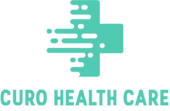For students with disabilities, the journey from high school to college is both exciting and challenging. The transition process requires careful planning to ensure students can thrive academically, socially, and personally in this new chapter of their lives.
Below, an education lawyer will explore strategies, resources, and considerations for students with disabilities to navigate the shift from high school to college successfully.
Why Is This Transition Unique?
High school provides structured support through Individualized Education Programs (IEPs) or 504 Plans, but college presents a different landscape as our friends at K Altman Law can explain. Students are expected to advocate for themselves, navigate new systems, and adapt to varying academic demands. Unlike high school, where accommodations are guaranteed, colleges require students to request and prove the need for support.
Understanding these differences is the first step in ensuring a smooth transition.
Academic Accommodations And Support
Colleges offer resources to support students with disabilities, but accessing them requires action on the student’s part.
Registering With The Disability Services Office
Students should contact their college’s disability services office early to understand the process of obtaining accommodations. Providing documentation of a disability is typically required.
Utilizing Available Resources
Services like note-taking assistance, extended test time, and accessible materials are commonly available. Colleges may also provide assistive technology, such as screen readers or speech-to-text tools.
Time Management Skills
Developing organizational skills is crucial. Unlike high school, college schedules are less structured, making effective time management essential for balancing academics and other responsibilities.
Building Independence
Transitioning to college often means living away from home and managing daily responsibilities independently. For students with disabilities, preparing for this independence is critical.
Self-Advocacy
In college, students must communicate their needs to professors and staff. Practicing self-advocacy skills in high school can ease this process.
Life Skills
Learning basic skills like budgeting, cooking, and managing medications helps students adjust to independent living.
Creating A Support Network
Building relationships with peers, advisors, and mentors provides a sense of community and additional support.
Social And Emotional Support
The emotional aspect of transitioning to college can be overwhelming. Students with disabilities may face unique social challenges, but resources exist to help them navigate this new environment.
Joining Clubs And Organizations
Many colleges have student groups focused on disability advocacy or shared interests, providing opportunities to connect with peers.
Counseling Services
Mental health support is essential, especially during significant life transitions. Most colleges offer free or low-cost counseling services to help students manage stress and build resilience.
Preparing Early
Preparation is key to a successful transition.
Exploring Colleges
Researching colleges with strong disability support programs helps students find the right fit. Campus visits and conversations with disability service staff can offer valuable insights.
Planning During High School
Participating in transition planning meetings and discussing college goals with teachers, counselors, and parents ensures that students are equipped with the tools they need.
The transition from high school to college is a transformative experience for students with disabilities. While challenges may arise, careful preparation, access to resources, and building independence can empower students to succeed in this new environment. By embracing self-advocacy and utilizing the support systems available, students can thrive academically and personally, paving the way for a bright future. However, if your student is not being given accessible options at their chosen school, you should contact a lawyer near you for help.

